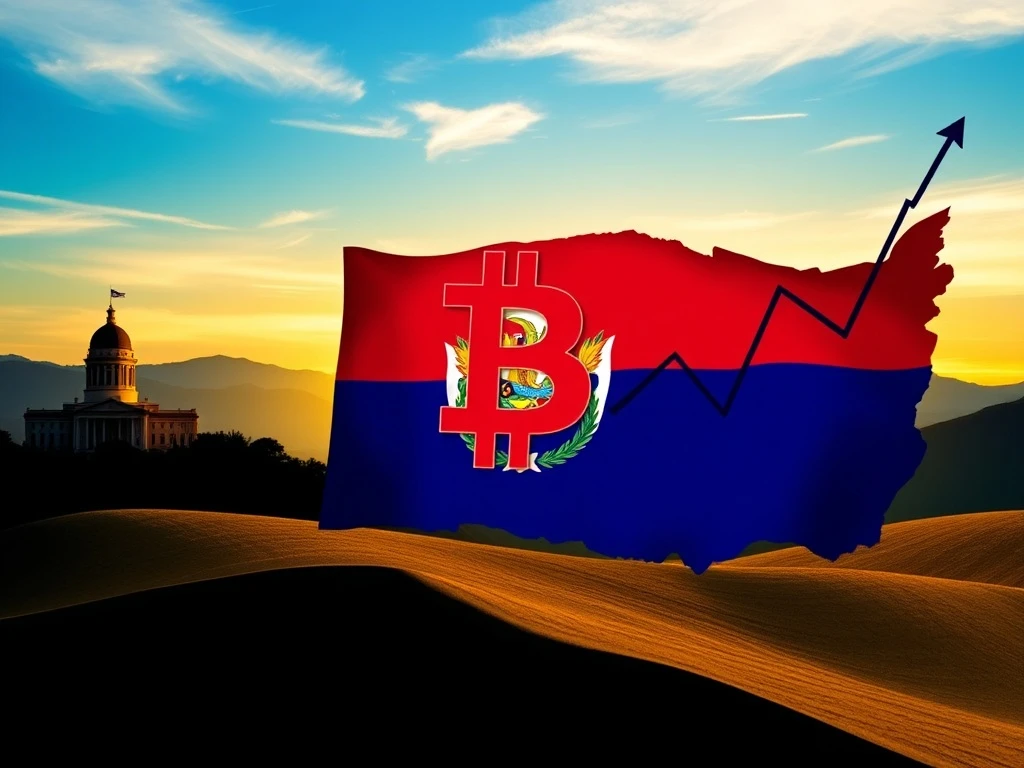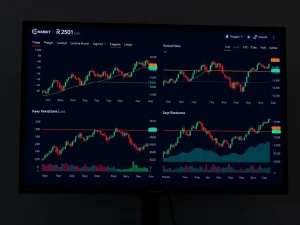El Salvador Bitcoin: Four Years On, Unveiling Complexities and Resilience

For anyone following the groundbreaking journey of digital currencies, El Salvador’s bold move to embrace Bitcoin legal tender remains a pivotal moment. Indeed, four years have passed since the Central American nation made history, a period marked by both ambitious strides and significant challenges. Therefore, this anniversary prompts a crucial look into the tangible impacts of this pioneering El Salvador Bitcoin experiment.
El Salvador’s Bold Bitcoin Journey Unveiled
El Salvador proudly commemorates “Bitcoin Day,” marking the anniversary of its landmark Bitcoin legal tender law, enacted in September 2021. The nation’s Bitcoin Office has actively highlighted several key achievements. For example, the country’s strategic Bitcoin reserve now impressively holds 6,313 BTC. This substantial holding is currently valued at over $702 million. Furthermore, new banking legislation has emerged, specifically designed to permit BTC investment banks to cater to sophisticated investors. This development signifies a growing institutional framework for digital assets within the country.
Celebrating Four Years of Bitcoin Legal Tender
The government agency also confirmed significant progress in public education. By 2025, an impressive 80,000 public servants have received official Bitcoin certification. Moreover, El Salvador now hosts several public education programs focused on both Bitcoin and artificial intelligence. These initiatives aim to foster a deeper understanding and broader crypto adoption among the populace. Key achievements highlighted by the Bitcoin Office include:
- A strategic Bitcoin reserve holding 6,313 BTC, valued over $702 million.
- New banking legislation permitting BTC investment banks for sophisticated investors.
- Certification of 80,000 public servants in Bitcoin by 2025.
- Establishment of public Bitcoin and AI education programs.
However, despite being the first nation to adopt Bitcoin legal tender and establish a national reserve, El Salvador has faced external pressures. The government notably scaled back some of its initial Bitcoin policies. This adjustment occurred to comply with the terms of a significant loan deal from the International Monetary Fund (IMF), a powerful supranational financial institution. Consequently, the country’s four-year El Salvador Bitcoin experiment has produced a range of outcomes, leading to diverse opinions within the global Bitcoin community regarding its overall success.
The Impact of IMF on El Salvador’s Bitcoin Policies
A significant shift in El Salvador’s Bitcoin legal tender approach stemmed directly from its engagement with the IMF. Specifically, in January, the nation’s legislature formally repealed the Bitcoin legal tender law. In addition, the government committed not to purchase additional Bitcoin using public funds. These actions were integral parts of a substantial $1.4 billion loan agreement with the IMF. The government also agreed to reduce support for its Chivo Bitcoin wallet, which had experienced limited usage among the country’s residents.
Navigating the Complexities of International Finance
The IMF published a revealing report in July. This report confirmed that El Salvador had not acquired any new Bitcoin since signing the $1.4 billion loan agreement in December 2024. This news sent ripples through the international crypto community. Included within the IMF report was a letter of intent. This letter, signed by key financial officials—Douglas Pablo Rodríguez Fuentes, El Salvador’s central bank president, and Jerson Rogelio Posada Molina, minister of finance—explicitly confirmed that the government’s BTC balance remained unchanged. This transparency underscores the direct influence of international financial bodies on national digital asset strategies. Moreover, El Salvador’s evolving policies have attracted scrutiny from various Bitcoin advocates and non-government organizations (NGOs).
The letter of intent included in the IMF report, signed by financial officials from El Salvador, confirming that the country’s BTC balance has not grown. Source: IMFCritics argue that the existing BTC policies primarily benefit the government and international corporations. They contend that these policies do not sufficiently empower average residents of the Central American country. Therefore, a crucial need exists for more robust education initiatives. These initiatives could fully unlock the advantages of the world’s first decentralized peer-to-peer electronic cash system. Ultimately, they would foster wider crypto adoption by the local population, moving beyond just governmental agencies.
Mixed Outcomes and Future of Crypto Adoption
The journey of El Salvador Bitcoin adoption has indeed presented a mixed bag of results. On one hand, the nation has successfully built a substantial Bitcoin reserve and implemented progressive banking laws. These steps demonstrate a commitment to integrating digital assets into its financial system. On the other hand, the practical crypto adoption by everyday citizens remains a significant challenge. Many residents still prefer traditional payment methods, indicating a gap in public understanding and trust.
Public Perception and the Bitcoin Reserve
For true, widespread crypto adoption to occur, educational programs must be accessible and compelling. These programs should highlight the practical benefits of Bitcoin for daily transactions, remittances, and savings. The government’s Bitcoin reserve serves as a strong symbolic asset, yet its direct impact on individual citizens’ financial well-being is less clear. Moving forward, El Salvador faces the task of balancing its international financial obligations with its pioneering vision for Bitcoin. This balance will determine the long-term success of its unique digital currency experiment. The world watches closely, eager to learn from El Salvador’s groundbreaking experience.
El Salvador’s four-year anniversary with Bitcoin legal tender is a landmark event. It offers invaluable lessons for other nations considering similar paths. While the nation has achieved notable milestones, particularly with its Bitcoin reserve and institutional frameworks, the influence of the IMF has undeniably shaped its trajectory. The path to widespread crypto adoption remains complex, requiring sustained efforts in education and public engagement. Ultimately, El Salvador’s journey continues to be a compelling case study in the evolving global landscape of digital finance.










